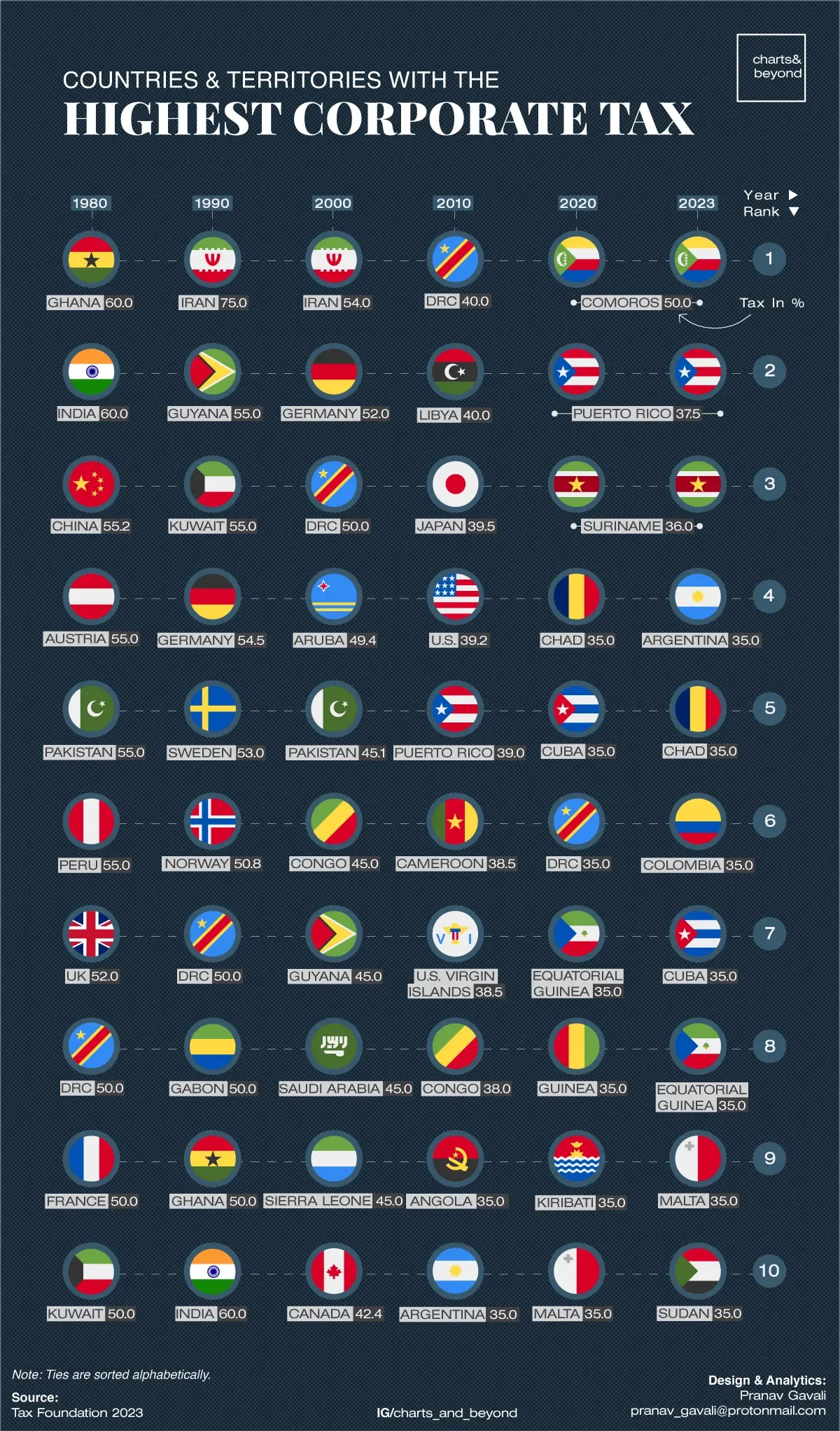Where Data Tells the Story
© Voronoi 2026. All rights reserved.

Developed by Pranav @charts_and_beyond
Read more about the state of taxation here:
1 - Corporate Tax Rate in every Country
2 - Personal Income Tax Rate in every Country
3 - Where Corporate Tax Rates have been the lowest?
Delving into the financial landscapes of nations, this article unfolds the countries where corporate tax rates have soared to remarkable heights over the past five decades. By examining the tax data from 1980 to 2023, we highlight the nations that have consistently imposed the highest corporate taxes, shedding light on the economic and political factors that have shaped these rankings.
Key Findings:
Ghana, India, and China emerged as early leaders in 1980, with corporate tax rates reaching 60% and 55.2%, respectively. Over the years, Germany, Kuwait, and the Democratic Republic of the Congo also claimed top positions, showcasing the diversity of nations with high corporate tax structures.
Evolution Over Decades:
The tax landscape witnessed significant shifts in subsequent years. Iran took the lead in 1990 with a staggering 75% corporate tax rate, while countries like Seychelles, Saint Vincent and the Grenadines entered the top rankings in 2005, illustrating the dynamic nature of global tax policies.
High corporate tax rates can influence investment decisions, economic growth, and international competitiveness. Understanding the historical evolution of these rates provides valuable insights into the fiscal policies that countries have adopted to shape their economic destinies.
What could be the side effects of high corporate tax rates?
- Reduced Business Investment: High corporate tax rates can discourage businesses from investing in a country, as they may seek locations with more favorable tax environments. This can lead to a slowdown in economic growth and job creation within the nation.
- Decreased Competitiveness: Nations with high corporate tax rates may become less competitive on the global stage. Companies may choose to relocate or establish operations in countries with lower tax burdens, affecting the overall competitiveness of the high-tax nation.
- Potential Impact on Employment: High corporate taxes can influence hiring decisions as businesses may face increased costs. This could result in reduced job creation or even job cuts, impacting the overall employment landscape in the country.
In Conclusion:
As we navigate a world of economic intricacies, these rankings underscore the importance of tax policies in shaping national financial landscapes. The insights gleaned from the data encourage a nuanced discussion on the impact of corporate tax rates on global economies and the need for ongoing policy evaluations to ensure a balance between revenue generation and economic vitality.